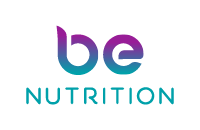Obesity Brain
Obesity is an extremely complex condition that we've only just touched the surface to fully understand. Many people hold the belief that individuals who are overweight simply need to eat less and move more. However, once an individual gains a significant amount of weight, there are profound physiological changes that make losing weight difficult.
A recent study conducted by Macquarie University demonstrated that obesity may involve deterioration of cognitive processes that influence eating. Previous animal studies have shown that under normal conditions, thoughts of food are blocked during periods of fullness. As food is no longer a priority, thoughts of food are inhibited. However, when animals are fed a high-fat, high-sugar Western diet, food inhibition is impaired. Meaning, the sight and smell of food leads to food seeking, even when full, when there's no physiological need to eat.
Researchers at Macquarie University have now demonstrated this same phenomena in humans. Quoting the lead researcher on the study, "In agreement with the animal research, people with greater intake of a high fat, high sugar diet did more poorly on the learning and memory tests because of how the diet impacts the hippocampus (part of the brain responsible for food-related memories)." The Macquarie University researchers believe inability to inhibit food memories when in a satiated (full) physiological state could then explain the persistent desire to seek food. This particular statement by the lead researcher on the study is quite profound - "For otherwise healthy, lean, young people who routinely consume high-fat high-sugar diets, compromised hippocampal function may make it harder to regulate food intake and set them upon the road towards obesity."
While this was a really small study, it illustrates how dietary habits may perpetuate a cycle that is extremely difficult to change. We eat poorly, gain weight, our brain's ability to inhibit poor food selection deteriorates, we continue to over consume high-fat and high-sugar foods, and gain MORE weight.
The bottom line is this - if you're young and relatively healthy today, but have poor eating habits, now is the time to make a change. Chronic disease generally doesn't appear overnight. Heart disease, diabetes and high blood pressure occur after years of poor habits; and often manifest in states that are difficult to reverse and prevent from progressing further. On top of that, obesity has also been linked to dementia and decline in cognitive function. Perhaps you're not concerned about what the future holds. Trust me, however, your future self will thank you for making healthy choices today. I see patients on a daily basis with limited mobility and poor quality of life, because of the lifestyle choices they made in their 30's and 40's.
If you're not sure where to start adopting healthier eating habits, www.supertracker.usda.gov, is a great free resource to help get you started.
If you're already overweight or obese and experiencing health complications, seek the help of a licensed health professional. I highly recommend finding a registered dietitian in your area that specializes in obesity treatment, who can provide on-going support. Changing your dietary and lifestyle habits will NOT be easy. It will take constant vigilance to re-program your brain to view food differently, and make healthier choices.
At BE Nutrition our programs will empower you to change your relationship with food, feel good in your body and achieve better health. We provides a customized meal plan based on your individual medical and lifestyle needs, bi-weekly or weekly consultations to identify and remove barriers to health, quick and easy recipes and other practical tools to make eating healthy simpler. We also provide on-going text and email follow up to support your journey to better health
Visit the services tab on our website to learn more about our comprehensive nutrition counseling services. There's no time like the present to get serious about improving your health!
Share this post with your network by clicking the social links below and leave a comment. We want to hear from you!
Let's tackle you're health goals together!
XO,
Basheerah

